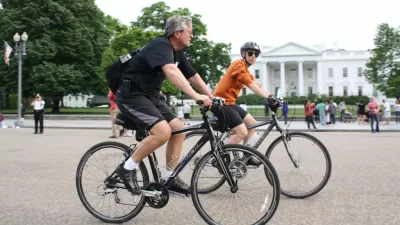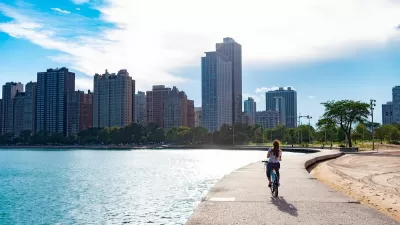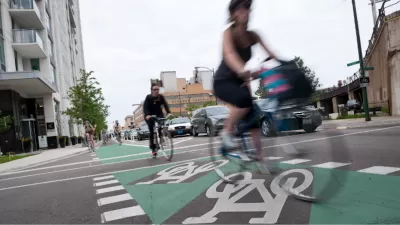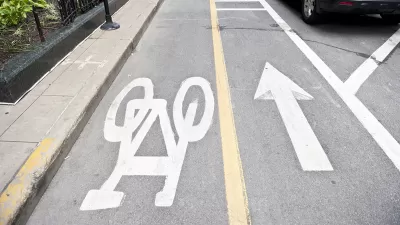Warning: This five-minute video may be the most critical evaluation of American cycling conditions you will ever watch. After viewing, you may understand what separates cycling in the U.S. from that in The Netherlands - it's not just infrastructure.

It's common for bike advocates and planners to visit Amsterdam to experience Dutch cycling conditions, but what of the reverse? Mark Wagenbuur of Bicycle Dutch did just that, and clearly he wasn't pleased with what he found, except in Davis, Calif.
Wagenbuur doesn't think much of bike helmets, lycra, recreational cycling, and all those 'street cycling skills' that many experienced city cyclists pride themselves in practicing. Cycling, 'Dutch-style, is primarily utilitarian and casual, which describes most of the biking in Amsterdam, comprising an astonishing 60% of all inner-city trips.
Wagenbuur evaluates riding conditions and evolving bicycle street infrastructure (which he refers to as 'infra') throughout the U.S. The more protection from autos, the better, like "Chicago’s Parking Protected Bike Lane Designs" (PDF), though he still finds room for criticism.
But it is still not much more than paint. Curbs would make it prettier and less easy to reverse.
He does seem to find conditions somewhat close to home in Davis, Calif., the city that boasts the highest amount of trips (22%) made by bike in the U.S. "But there's a lot of cycling here despite the (lack of) infrastructure, not because of it", he remarks, referring to the downtown area of this university town of 66,000.
There the bicycles were far more of the upright variety and people were cycling in normal clothes without all the superfluous safety measures. Good to see that this is also possible in the US. This relaxed type of cycling obviously attracts a far wider range of people, even without specific cycling infrastructure.
Before you shrug off Wagenbuur's criticisms - after all, the U.S. is not Europe and comparisons may not be valid, bear in mind his observation that a "cyclist in the U.S. is 30 times more likely to be injured than a cyclist in the Netherlands."
FULL STORY: US cycling from a Dutch perspective

Alabama: Trump Terminates Settlements for Black Communities Harmed By Raw Sewage
Trump deemed the landmark civil rights agreement “illegal DEI and environmental justice policy.”

Study: Maui’s Plan to Convert Vacation Rentals to Long-Term Housing Could Cause Nearly $1 Billion Economic Loss
The plan would reduce visitor accommodation by 25% resulting in 1,900 jobs lost.

Planetizen Federal Action Tracker
A weekly monitor of how Trump’s orders and actions are impacting planners and planning in America.

Waymo Gets Permission to Map SF’s Market Street
If allowed to operate on the traffic-restricted street, Waymo’s autonomous taxis would have a leg up over ride-hailing competitors — and counter the city’s efforts to grow bike and pedestrian on the thoroughfare.

Parklet Symposium Highlights the Success of Shared Spaces
Parklets got a boost during the Covid-19 pandemic, when the concept was translated to outdoor dining programs that offered restaurants a lifeline during the shutdown.

Federal Homelessness Agency Places Entire Staff on Leave
The U.S. Interagency Council on Homelessness is the only federal agency dedicated to preventing and ending homelessness.
Urban Design for Planners 1: Software Tools
This six-course series explores essential urban design concepts using open source software and equips planners with the tools they need to participate fully in the urban design process.
Planning for Universal Design
Learn the tools for implementing Universal Design in planning regulations.
Caltrans
Smith Gee Studio
Institute for Housing and Urban Development Studies (IHS)
City of Grandview
Harvard GSD Executive Education
Toledo-Lucas County Plan Commissions
Salt Lake City
NYU Wagner Graduate School of Public Service





























